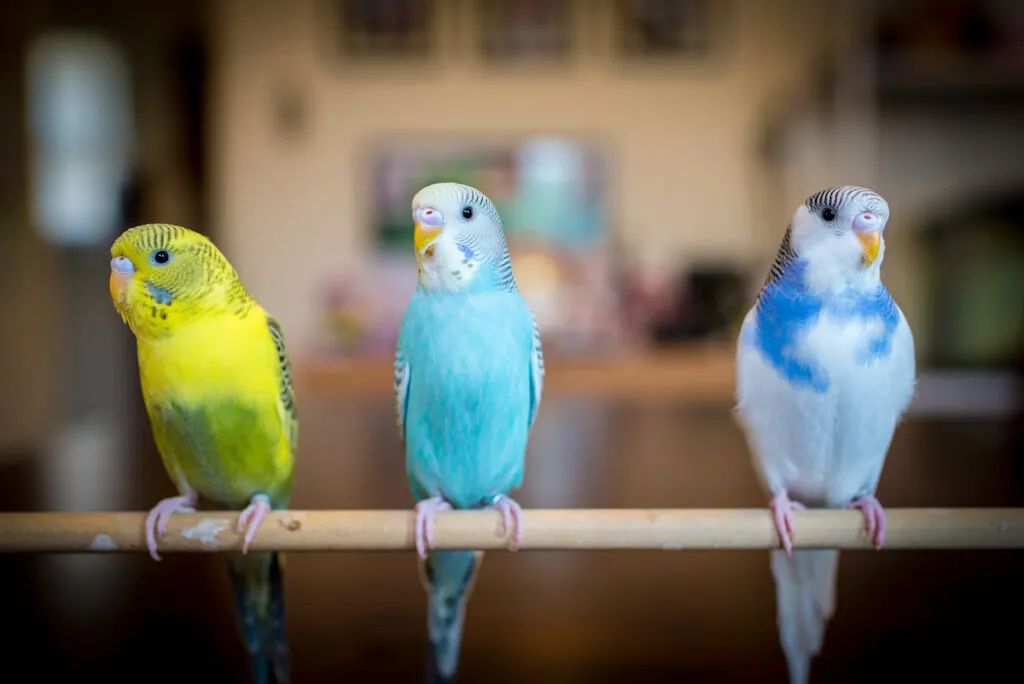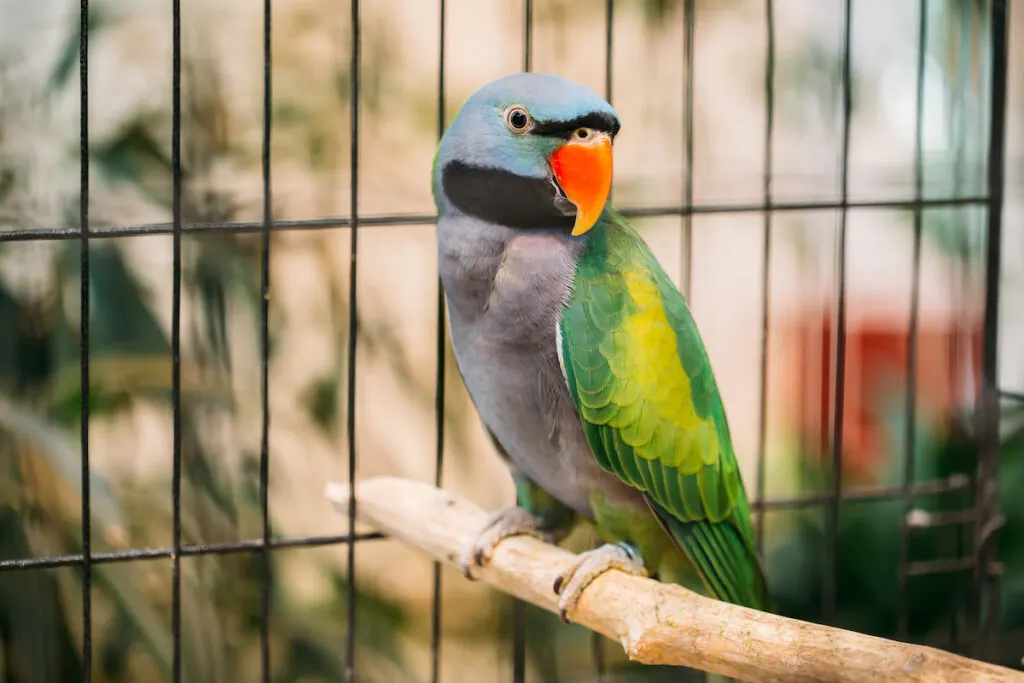Owning a parakeet is a ton of fun. Budgie parents naturally worry about their birds and want them to get the best sleep possible. One of the best ways to help your parakeet stay comfy and warm at night is to cover the cage.
Covering your parakeet’s cage isn’t absolutely necessary, but doing it will keep them warm and block out any light or noises from the house.
A lot of people keep their birds in parts of the house where there are lights from clocks, computers, or appliances. With the right cover, you can make sure your budgie is calm and gets the rest they need.

Table of Contents
Why Sleep Is So Important for Parakeets
If you do a bit of self-reflection, you can recognize how detrimental not getting enough sleep is to your mental and physical health. Getting good quality sleep is so important that we spend a lot of time and money finding the right mattress, pillows, and sheets.
As we get older, many people discover that getting to sleep and getting deep, restorative sleep becomes harder. That’s when we start doing things like avoiding caffeine, putting our phones down, dimming the lights, and listening to relaxing music to let our bodies know it’s time for bed.
Parakeets, if you can believe it, can be even more sensitive than humans. Parakeet behaviors vary on a spectrum, but a lot of budgies are sensitive and become stressed fairly easily.
As a result, the conditions need to be right for them to get good sleep.
How long should their cage be covered?
Typically, parakeets will do best with around 12 hours of sleep a night.
That’s a long time to sleep, and it can be hard to tiptoe around the house or keep things dark in their room for half of the day.
That’s why a cover can be so useful. It allows your bird to get the sleep they need but also allows you to live your life.
Finding the Right Sleep Formula for Your Budgie
Birds will vary in how they respond to covers. The main thing you need to do, as a budgie parent, is pay attention to how your bird is reacting to its cage, the cover, and other things you do at night.
Let’s take a look at some of the pros and cons of cage covers for parakeets.
Pros
You can tell if your bird isn’t getting enough sleep by watching its behavior. Parakeets can be especially cranky if they are sleep-deprived.
They’ll make a lot of noise, avoid human interaction, and, if they are in a cage with another bird, can become quite snappy with each other.
A cage cover blocks out light from around your house. If your parakeet’s cage is next to the patio doors, for example, and there is a motion light outside, it will wake them up every time it’s triggered by something.
The cover will also muffle noise from around the house for when you want to talk with someone, watch TV, or listen to music in the evening.
With a good cover, things will stay warm inside the cage and keep your bird comfortable.
Finally, your budgie may feel calmer with a cover because they don’t have to monitor whatever is going on outside of the cage. They can simply focus on falling asleep and waking up well-rested.
Cons
Most of the time, a cage cover will do the trick and help your budgie get enough sleep where they will be in a fantastic mood in the morning and will be ready to play and interact during the day.
However, some parakeets will respond negatively to a cage cover, and owners need to notice the difference quickly.
Ideally, your bird will associate a cage cover with sleep and comfort. It can sort of be like a child having their favorite blanket when they go to sleep at night.
However, this is not always the case. Sometimes your bird won’t respond well to the cover.
Watch and see if they become irritable when you move the cover or start to put it over the cage. If they start moving around quickly in the cage or making shrill noises, that’s a sign of distress.
Are parakeets/budgies afraid of the dark? Some are, and they’ll let you know. They don’t want the cover.
Also, look for signs of stress in the morning like feather plucking. If you look and see them trying to peck or claw at the cover, then that’s another sign they aren’t into it.
It May Take Some Time to Get Used to the Cage Cover

Don’t be afraid to give the cage cover more than one go. It could be that your bird hasn’t used one.
Maybe they were in a pet store where it was easy to get good sleep because, after closing hours, all of the lights went out and there were no people inside to make noise. Transitioning into a busy home with different hours can be difficult.
Some parakeets will need a few days to become used to the cover. Think of it like sleep training a baby. They need to learn that this is the new normal and adapt.
They may fight it at first, but soon they’ll associate the cover with sleep and it will give them comfort instead of stressing them out.
You can try to ease the transition by spending a lot of time with them during the day and just before bedtime. As you put the cage cover on, speak to your bird in a reassuring and calming tone to let them know that everything is going to be ok.
In conclusion, setting the right conditions for your budgie to get good sleep is vital to their mental and physical wellbeing. For some birds, that means a cage cover, for others, though, cage covers won’t work. Figure out what works best for your budgie and go from there.
What is best to use to cover your cage? There are a lot of good options online to choose from and, with time, you can find the perfect cage cover to help your parakeet get great sleep.
